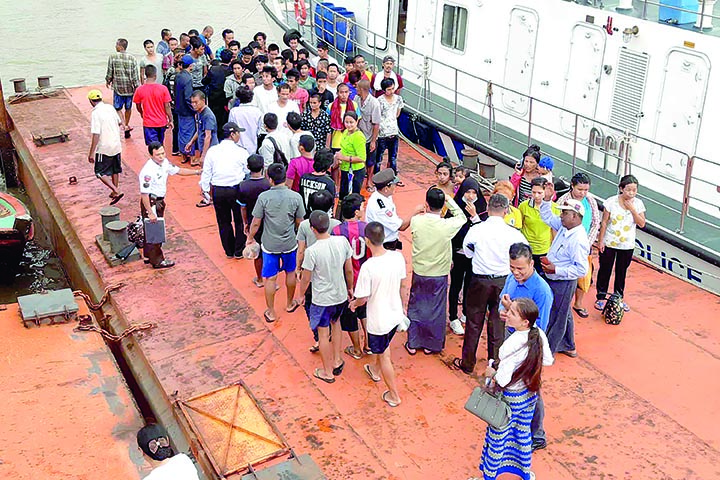20 June
Myanmar has its share of irregular outmigration of unskilled labour particularly those crossing the borders, many illegally, to seek employment in the neighbouring countries. Despite the legal channels available to them, many innocent persons, particularly from the rural areas, seem to place their trust on “illegal recruiters/ brokers” who promise them high paying jobs in the receiving country. These “illegal recruiters/brokers” charge exorbitant fees so that the potential migrant has to borrow money at high interest rates to pay them or they are held in debt-bondage to the brokers and employers. Many of the jobs promised are actually non-existent and the workers are “sold” up on arrival to counterpart brokers in the destination country who try to place them in any job “employers” give them.
It seems that some Licensed Service Agents, by using services of “illegal recruiters”, are in fact reaching out to and “persuading” the potential migrant worker to migrate. It should be the other way round, that is those who seek to migrate for overseas employment should connect with the nearest Licensed Service Agent, possibly with the advice of the Labour Exchange at which he/she was registered as an “overseas job seeker” or from Migrant Information Centers of the Department of Labour.
The management of migration should of course include, among other measures, taking effective action to prevent “illegal recruitment” of workers for overseas employment. Action is being taken against the unlicensed recruiters under the present 1999 Law relating to Overseas Employment. However, the provisions relating to “illegal recruitment” and the penalty for infringement of such provisions need to be more explicitly expressed in the law. It would better deter the “illegal recruiters” and thus stem the tide of the increasing irregular labour outmigration for employment, particularly cross border migration to neighbouring countries.
The number of irregular unskilled migrant workers far exceed the migrant workers who go through the Licensed Service Agents. This is also partly due to the time taken to authenticate and process the “Job Offers”. If the time and cost of legal recruitment and placement of migrant workers into jobs in the destination countries could be reduced, many more of those seeking overseas employment would go legally through the Licensed Service Agents.
This could be possible if a new law is enacted in which “illegal recruitment” including effective punishment for such recruitment is clearly expressed and the process of sending workers for overseas employment by the Licensed Service Agents are more streamlined.
Perhaps the Ministry of Labour, Immigration and Population is already in the process of enacting a new law to regulate overseas employment as was mentioned at the coordination meeting on labour matters held some time back at the Ministry of Labour, Immigration and Population in Nay Pyi Taw. If so, may I humbly suggest to the drafting committee to take into account my suggestions mentioned above.
I would, at the same time like to advise those seeking overseas employment to register themselves at the nearest Labour Exchange and consult the staff of the Labour Exchange and/or Migration Information Centres of the Department of Labour about legal and hence safe migration.
By Lokethar


